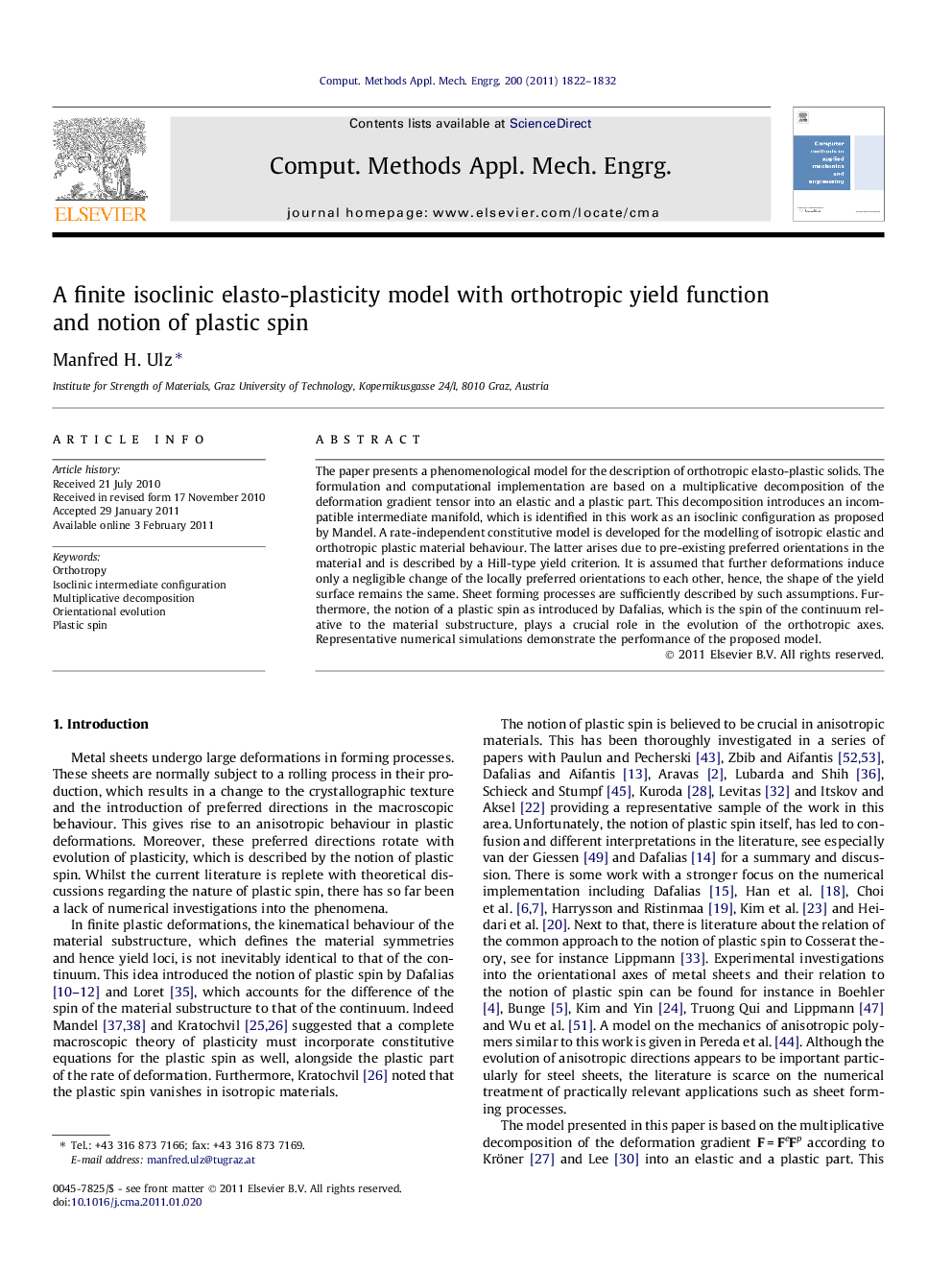| Article ID | Journal | Published Year | Pages | File Type |
|---|---|---|---|---|
| 498561 | Computer Methods in Applied Mechanics and Engineering | 2011 | 11 Pages |
The paper presents a phenomenological model for the description of orthotropic elasto-plastic solids. The formulation and computational implementation are based on a multiplicative decomposition of the deformation gradient tensor into an elastic and a plastic part. This decomposition introduces an incompatible intermediate manifold, which is identified in this work as an isoclinic configuration as proposed by Mandel. A rate-independent constitutive model is developed for the modelling of isotropic elastic and orthotropic plastic material behaviour. The latter arises due to pre-existing preferred orientations in the material and is described by a Hill-type yield criterion. It is assumed that further deformations induce only a negligible change of the locally preferred orientations to each other, hence, the shape of the yield surface remains the same. Sheet forming processes are sufficiently described by such assumptions. Furthermore, the notion of a plastic spin as introduced by Dafalias, which is the spin of the continuum relative to the material substructure, plays a crucial role in the evolution of the orthotropic axes. Representative numerical simulations demonstrate the performance of the proposed model.
